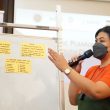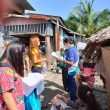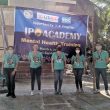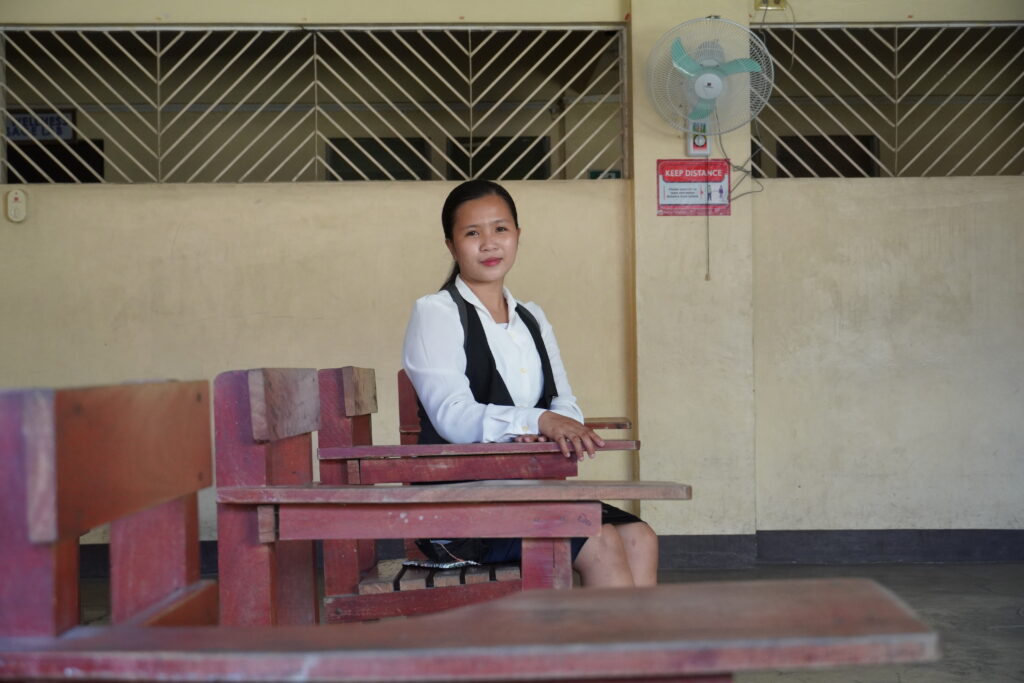
Joyme Celeste, 20, is the first in her family to go to college. She is an incoming sophomore at Valenzuela City Polytechnic College (ValPoly), studying Technical Vocational Teacher Education. Just a year ago, she was out of school. When she finished high school, she decided not to proceed to college to help out with her family’s livelihood instead.
Joyme applied for jobs but was always rejected because companies either preferred college graduates or skilled workers. These rejections strengthened her resolve to go back and pursue a college education.
“I firmly believe that education is the key to success, so I set it as my goal to finish college. There are more opportunities for college graduates,” Joyme said.
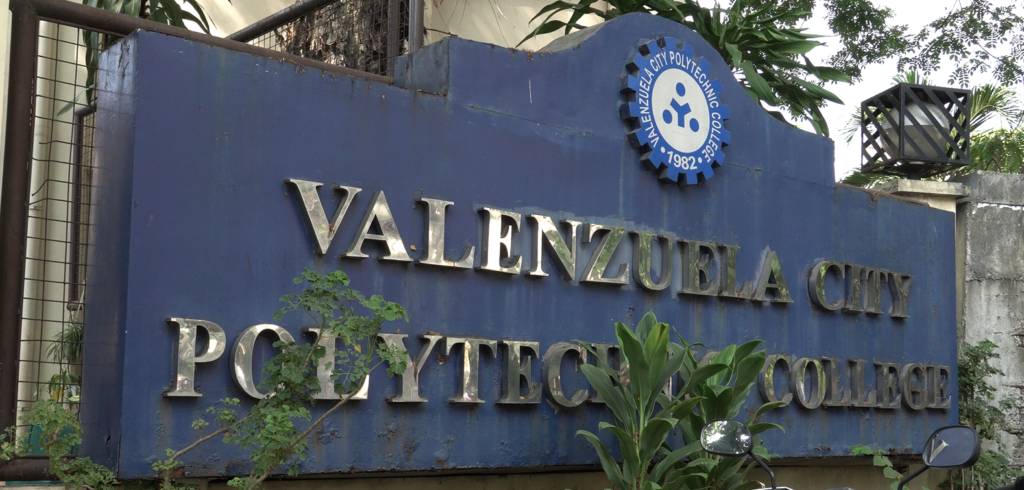
In July 2021, ValPoly received a grant from USAID, allowing the school to extend training opportunities to the city’s out-of-school youth population. It also built the capacity of ValPoly as an institution to cater to the unique conditions of the out-of-school.
For its first batch, ValPoly engaged 54 out-of-school youth in Valenzuela, one of whom was Joyme. ValPoly is a technical-vocational school in Valenzuela established in 1996, specializing in technology and education that prepares a workforce for the city’s manufacturing industry. Because of USAID support, ValPoly is now able to offer youth career guidance and peer support group organizing services for marginalized youth. The school also adopted USAID’s Higher-Level Education or Training Readiness Orientation—or HERO, a guide used to inform young people about college admission, document processing, and local education financing opportunities.
“Actually, hindi ko po talaga alam na may free programs ang government. Nalaman ko lang po noong nag-HERO na ako.”
(Actually, I really didn’t know there were free government programs. I only learned about it after undertaking HERO).
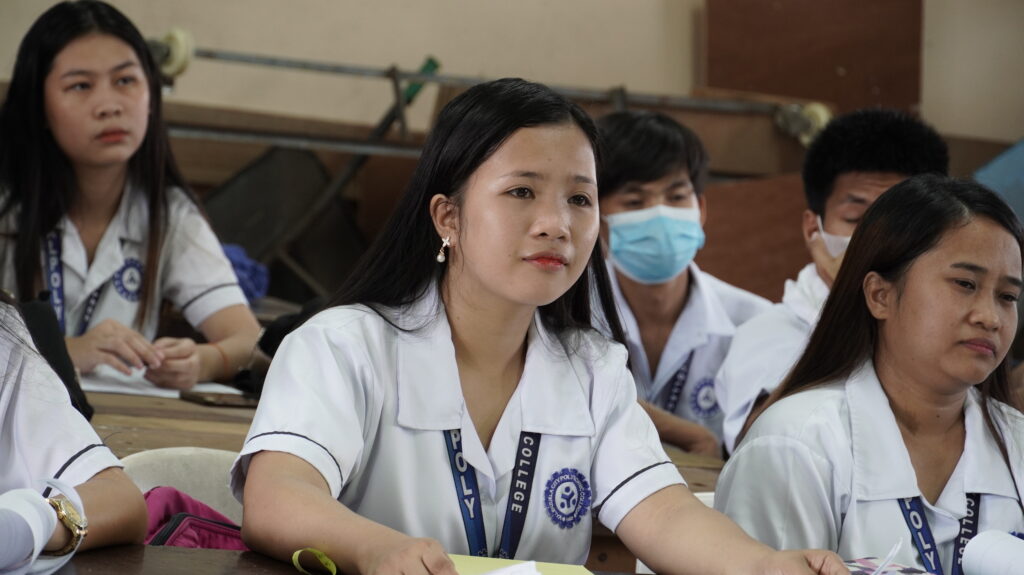
When Joyme underwent HERO, she learned of youth-focused programs available from the local public and private institution-members of the city’s Youth Development Alliance. “I wanted to pursue the field of Information and Communications Technology but when I realized it was expensive, I felt lost there for a moment,” she recalled.
Marginalized youth like Joyme are often unaware of free education programs or financial assistance systems. Local education and youth development actors in the Philippines previously lacked this guide, which left youth who dropped out and youth from alternative and technical-vocational education uninformed about moving-up opportunities in their community. Through USAID’s HERO, it has become easier for ValPoly to tap its own pool of faculty and current students to guide disadvantaged youth through pathways toward pursuing further studies or training.
“With HERO, I realized that I don’t have to stay out of school. I have big dreams that I want to achieve so when an opportunity came, I grabbed it. I was really thankful when I learned about ValPoly’s free tuition. I could finally do what I thought I couldn’t do—to go to college and get a diploma,” exclaimed Joyme.
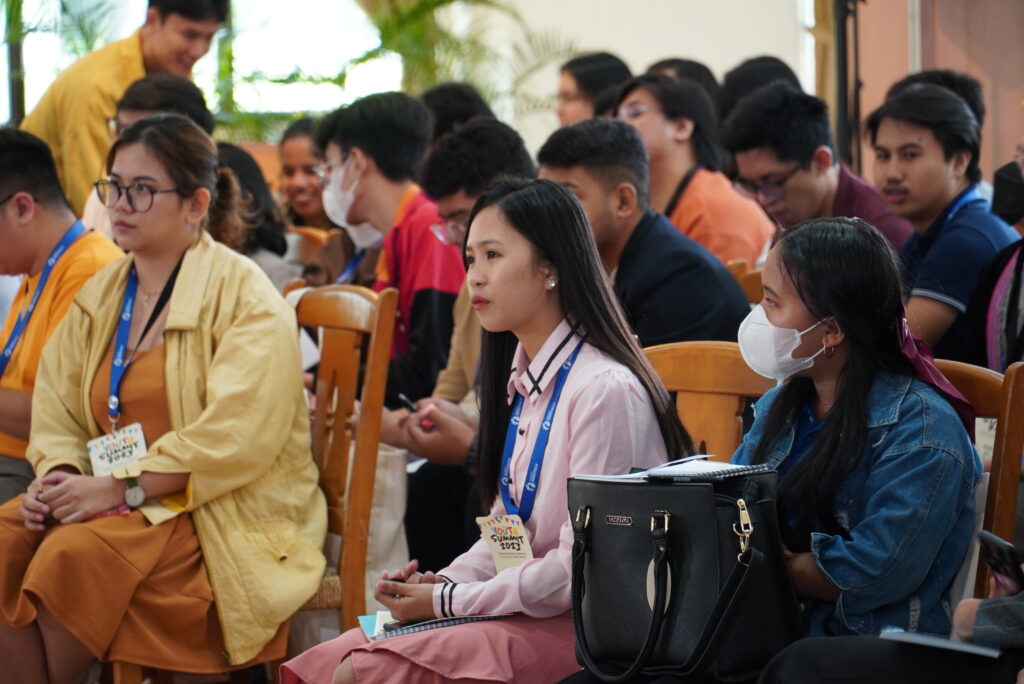
ValPoly found that HERO was a great tool because it improved its current student’s leadership and community engagement skills while also uplifting the marginalized youth sector in the community. USAID, through its Opportunity 2.0 program, is strengthening local institutions to serve marginalized Filipino youth. Grants worth a total of Php 73 million have been awarded to education and training service providers, which will benefit at least 6,400 marginalized youth. Partnership agreements with 76 higher ed institutions will also make sure that HERO is provided to out-of-school youth across 15 cities in the Philippines.
With the introduction of enhanced work and business training programs, as well as innovative materials and tools such as HERO, schools like ValPoly can now serve the out-of-school youth who have unique needs and come from difficult circumstances. USAID has leveraged the role and resources of Philippine higher education institutions towards uplifting the lives of out-of-school youth. Through an innovative guide that helps mobilize higher ed resources, faculty, and students, Filipino out-of-school youth now have better opportunities to pursue higher education, jobs, or businesses.#


